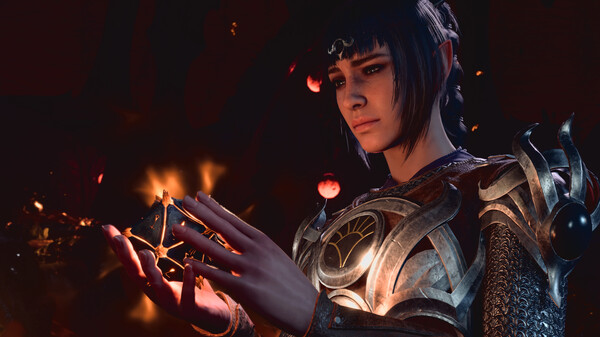I know I’m not the only one who has been intimidated by the sheer complexity of computer role-playing games (CRPGs) in the past. Games like Divinity: Original Sin 2 have always intrigued me because of just how deep and flexible these experiences are, and yet the systems and mechanics have always kept me away. I’ve just been too intimidated, but that needs to change soon.
With Baldur’s Gate 3 about to drop in its full release, I realized I couldn’t resist any longer. If I was going to enjoy what’s shaping up to be a landmark CRPG, I’d need to overcome my onboarding worries if I was going to find the fun. With the release just a few days away, I’ve made a decision that I think will finally get me into a CRPG as dense as this: I am going to read the heck out of some guides during my adventure. And I encourage you to do the same.
Guide my hand
For a very long time, there’s been an elitist mindset in some gaming circles that using guides or looking things up about games in any capacity somehow sullies the sanctity of the experience. In reality, that couldn’t be further from the truth. Sure, extra assistance might spoil a solution-based puzzle game if you look up every answer without trying to solve it yourself, but guides can also enhance one’s experience. Some may find joy in the process of solving esoteric riddles, fighting a boss with unclear mechanics, or unlocking hidden weapons for hours on end. But that’s not true for everyone.
When deciding whether or not I’d swallow my pride in Baldur’s Gate 3, one important design philosophy guided my decision: it’s willing to let me fail. CRPGs, including ones made by developer Larian prior to this, are built on the bones of the classic pen-and-paper Dungeons & Dragons rulesets. While they are modernized to a certain extent, a clear focus is on retaining the open-ended nature in as many ways as possible — including the fact that you can build a character that is bad, or even untenable, for completing the game.
This is certainly a selling point for some, but for those like me who don’t have the time or patience to realize five hours into a campaign that I made a character I don’t like and may need to start over, a guide can ensure I avoid those pitfalls. It means I’m able to get to the parts of the game I am looking forward to experiencing, which is crucial in an adventure that’s rumored to be 100 hours long.

Even in preparation for the game, looking at class guides has helped me feel more confident I can get into Baldur’s Gate 3. There are 12 classes to pick from the start, as well as 46 total subclasses within those 12. That alone would give me choice paralysis before even getting into how I would distribute my ability points, which weapons to focus on, and more. Thanks to some early guides, I can at least set myself up with a build I know will be functional. Even if I don’t end up liking it as much as I thought I would upon actually playing it, I can swap to another recommended build once I figure out what I do enjoy. I can make my decision knowing that it isn’t my fault I don’t enjoy certain characters because of how I built them.
It is in those early hours that guides can be vital for those like me, who are approaching this game looking for a deep and reactive story. And yes, I do look forward to the combat as well, but I believe a lot of newcomers will be attracted to how much Baldur’s Gate 3 promises to let them play however they want on a scale we hardly ever see in games. Especially for those who have never touched a hardcore CRPG before, a little help can keep us from bouncing off the game before getting to the entire reason we tried it in the first place.
There’s no shame in using guides for any games — and I’m not just saying that because I write them. Games offer separate experiences to different people who all play for a variety of reasons. Using a guide doesn’t cheapen those experiences; it simply helps players get to what they came for.
Baluder’s Gate 3 launches on August 3 for PC and September 6 for PS5.



